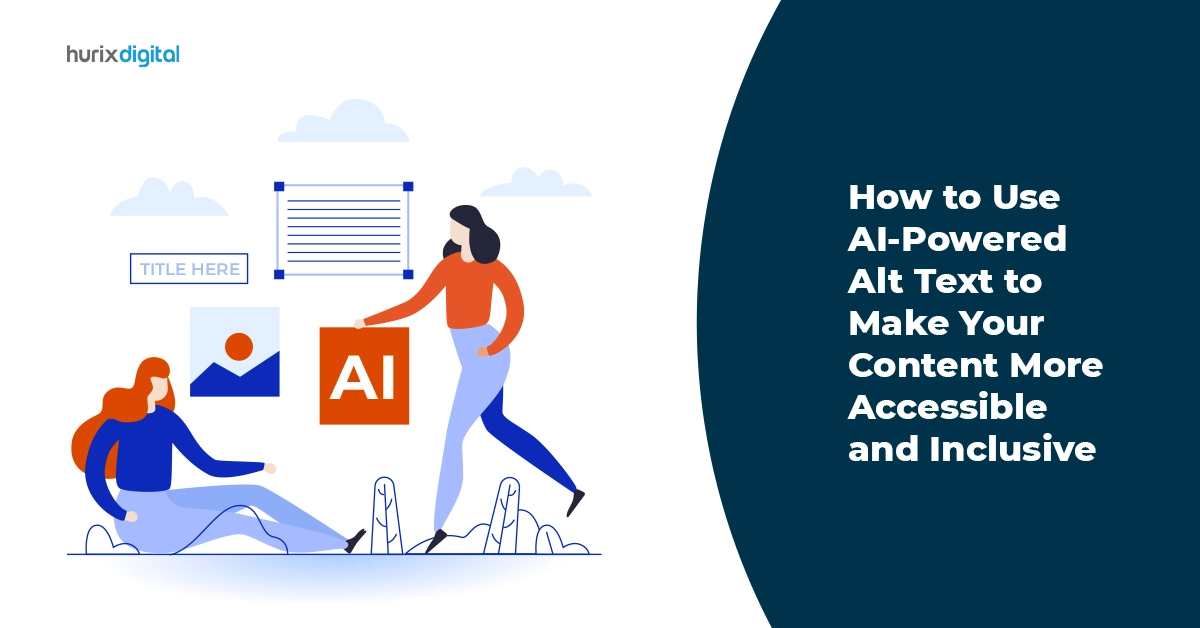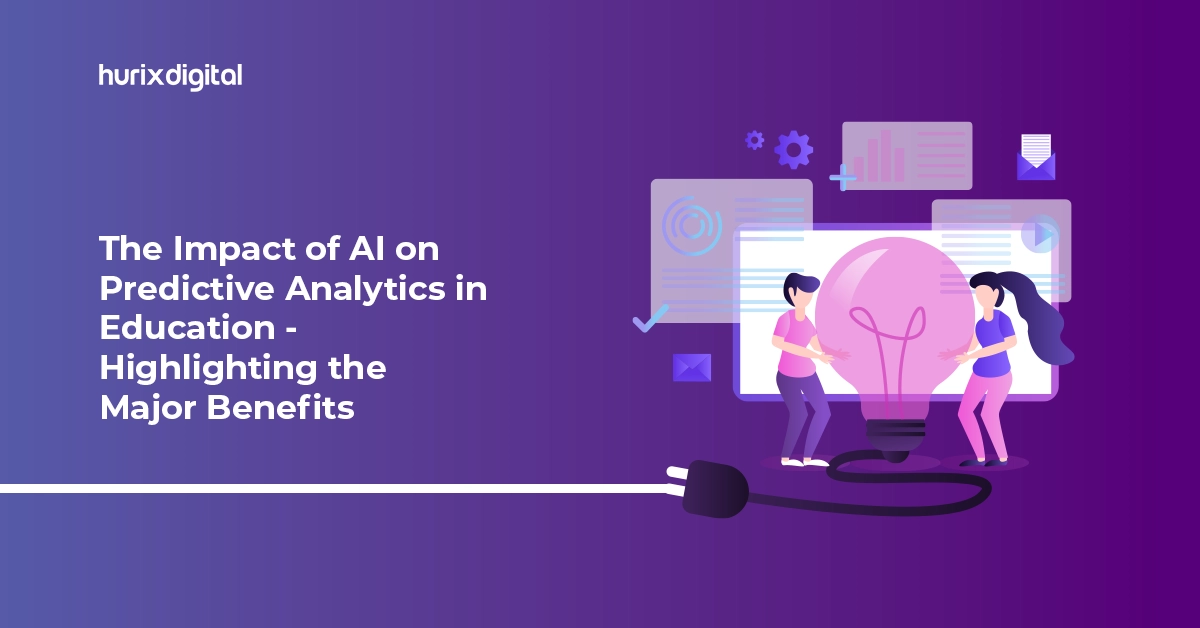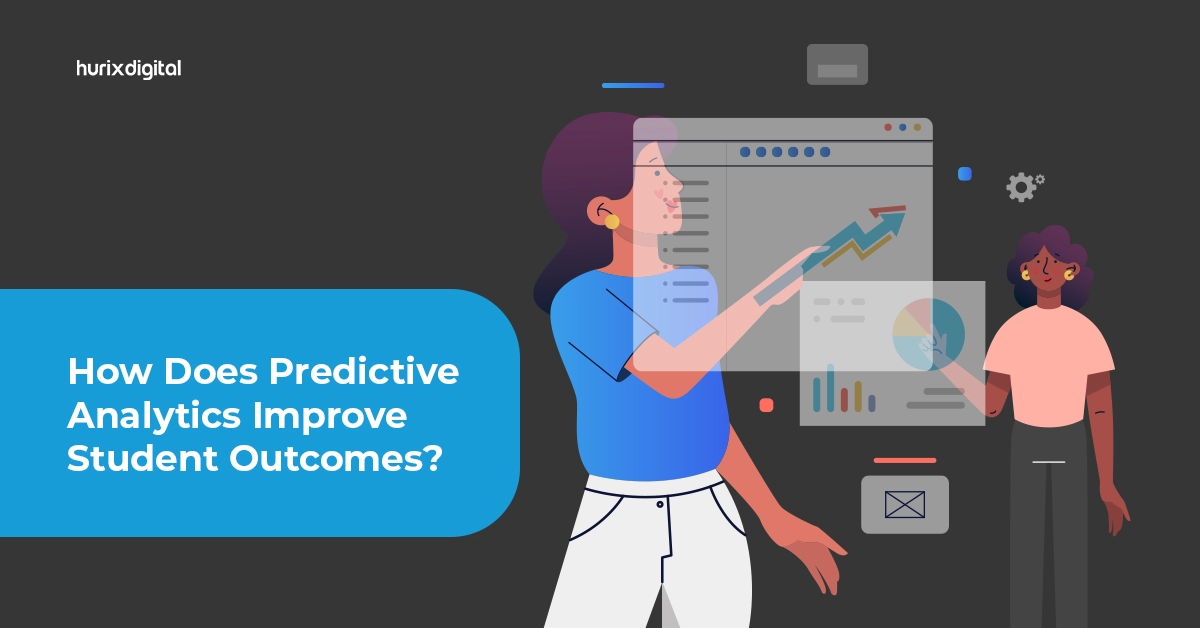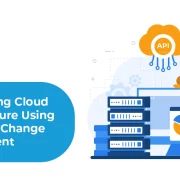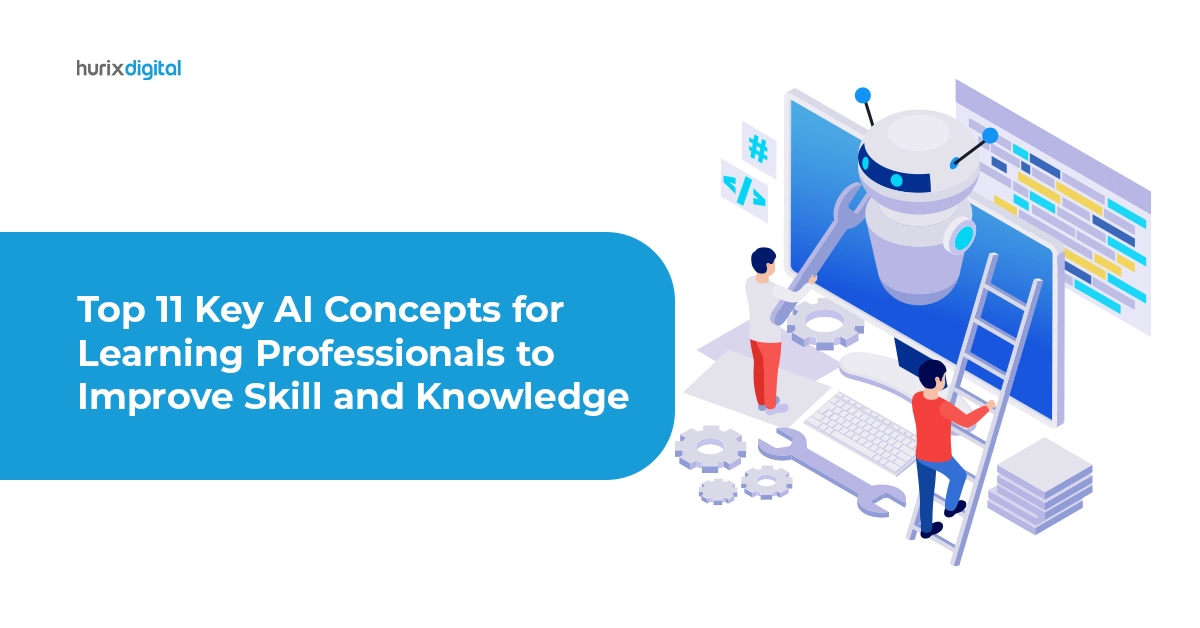
Top 11 Key AI Concepts for Learning Professionals to Improve Skill and Knowledge
Summary
Explore essential AI concepts that learning professionals should understand. This blog provides 11 key AI topics to enhance skills and knowledge in the field of education.
Artificial Intelligence (AI) is becoming a game-changer that transforms business operations and professional jobs across industries. Moreover, in the context of training and development, AI offers unlimited possibilities for improving learning techniques, individualizing learning encounters, and optimizing skill attainment.
As per Forbes Advisor’s survey, more than 50% of educators believe that AI has a positive impact on the teaching and learning process.
Therefore, to fully utilize its potential, educators must comprehend what AI learning and development are fundamentally about.
In this blog post, we will discuss the key ideas behind artificial intelligence, which are important for all learning professionals to know so that they can improve their competencies in line with current changes in educational technology.
Table of Contents
Key AI Concepts for Learning Professionals to Improve Skill and Knowledge
Here are 11 key AI concepts for learning professionals to improve their skills and knowledge.
1. Machine Learning
Machine learning lies at the heart of AI, empowering systems to learn from data and improve over time without explicit programming. Specialists in this field must have an understanding of the different types: supervised learning, unsupervised learning, reinforcement learning, decision trees, neural networks, and support vector machines, among other common algorithms.
Once you know what they are capable of doing, it becomes possible to create adaptive systems for teaching or recommendation engines for personalization that will optimize results based on predictions made by predictive analytics models using ML.
2. Natural Language Processing (NLP)
Natural Language Processing enables computers to understand human speech or writing so they can communicate with people more effectively. There are many ways educators might apply NLP.
This includes generating chatbots that respond in natural language to learner queries or analyzing large bodies of text for insight extraction towards intelligent tutoring system development. These programs would be able to understand questions asked by learners themselves and expressed naturally.
Also Read: Top 7 Blended Learning Resources for Workforce Training and Development
3. Deep Learning
Deep learning, a branch of machine learning (ML), centers around artificial neural networks with multiple layers that allow for complex data representation. An understanding of deep learning gives educators the ability to create advanced AI applications.
Some of them are speech recognition systems, image classification algorithms, and models for natural language understanding, thus changing the way we deliver and assess content.
4. Computer Vision
Computer vision enables machines to interpret and understand visual information from their environment. With vision and cognitive computing techniques, teachers can create immersive virtual reality (VR) and augmented reality (AR) learning experiences.
Moreover, they can automatically tag and classify content and improve assessment through technologies like facial recognition or emotion detection.
5. Recommender Systems
Recommender systems use AI algorithms to analyze user preferences and behavior and give them personalized recommendations on what to consume next. Educators need to know how recommender systems work.
That is how they can design adaptive learning platforms, curated learning pathways, and targeted content delivery strategies for individual learners based on their needs and interests.
6. Generative Adversarial Networks (GANs)
GANs are made up of two neural networks: the generator and the discriminator. These networks learn by competing against each other, which helps them produce realistic-like synthetic data.
For example, GANs can be used in educational programs to create virtual laboratories. They can also generate training sets for unusual cases or those that require privacy. Moreover, content developers may find them useful when creating lifelike videos, texts, or images.
7. Ethical AI
AI ethics is a top concern when working with educational systems. Teachers must account for fairness issues tied to algorithmic bias as well as student privacy vis-à-vis the use of their personal information by machines.
Additionally, there are moral questions surrounding automated decision-making through AI learning and development environments. To ensure inclusivity and gain students’ confidence in these programs, instructors need to follow ethical guidelines while being transparent about their intentions.
8. Data Privacy and Security
As AI-powered learning technologies become more common, protecting the privacy of student data and ensuring cybersecurity have become essential duties for educators.
Being aware of data protection regulations such as GDPR and implementing strong security measures can help reduce the risk of breaches or unauthorized access while keeping learners’ trust intact.
9. Explainable AI (XAI)
Explainable AI aims to make artificial intelligence models clear so that different stakeholders can easily understand how decisions were arrived at based on them.
Learning professionals should prioritize XAI techniques since they enable students to learn more about themselves through assessments made by algorithms driven by this system. This system also recommends personalized AI learning and development materials, thus enhancing comprehension and trust in an environment where machines do everything.
10. Transfer Learning
Transfer learning refers to when the knowledge gained from one task is applied to another related task, thereby speeding up AI learning and development speed and improving how models generally work.
To match specific educational settings, optimization of resource allocation and adaptation of pre-trained AI models may be necessary, among other things, which can be achieved through transfer learning methods. This will allow teachers to maximize knowledge sharing across different domains.
11. Continuous Learning and Adaptation
Due to the fast-changing nature of AI and education, it is important to adopt a culture of continuous AI learning and development. This will help experts in the field keep up with current trends, new technologies, and best practices.
Through participating in career advancement activities, working together with different teams from various disciplines, and trying out novel methods, professionals can change their skills with the progress made by artificial intelligence, thereby fostering innovation within teaching institutions.
Also Read: 6 Effective Training Techniques for Enterprises with a Distributed Workforce
Final Thoughts
As AI continues to revolutionize the field of learning and development, equipping learning professionals with a deep understanding of key AI concepts is paramount to unlocking its full potential.
Therefore, by being proficient in machine learning (ML), deep learning (DL), and Natural Language Processing (NLP), among other foundational ideas about artificial intelligence (AI), teachers will be able to design life-changing educational experiences that empower learners while catalyzing a company’s growth, thus shaping future education.
Embracing ethical principles, prioritizing data privacy and security, and fostering a culture of continuous learning and adaptation are essential pillars for navigating the AI-powered learning landscape with integrity, responsibility, and innovation.
Whether you’re looking to enhance employee training, optimize educational content delivery, or elevate learner engagement, Hurix Digital‘s cutting-edge technology and expertise empower you to achieve your goals with confidence.
From customizable learning platforms and interactive content authoring tools to AI-driven analytics and personalized learning experiences, Hurix Digital offers a comprehensive suite of solutions tailored to your organization’s unique needs. Join hands with us to revolutionize learning and unlock the full potential of your workforce.

Performance, Results, Growth, and Life-Long Learning define my professional life. I am passionate about making workplace learning planful, purposeful, and impactful. I take pride in partnering with clients and bringing them the best in learning design and creating solutions that address business challenges.

